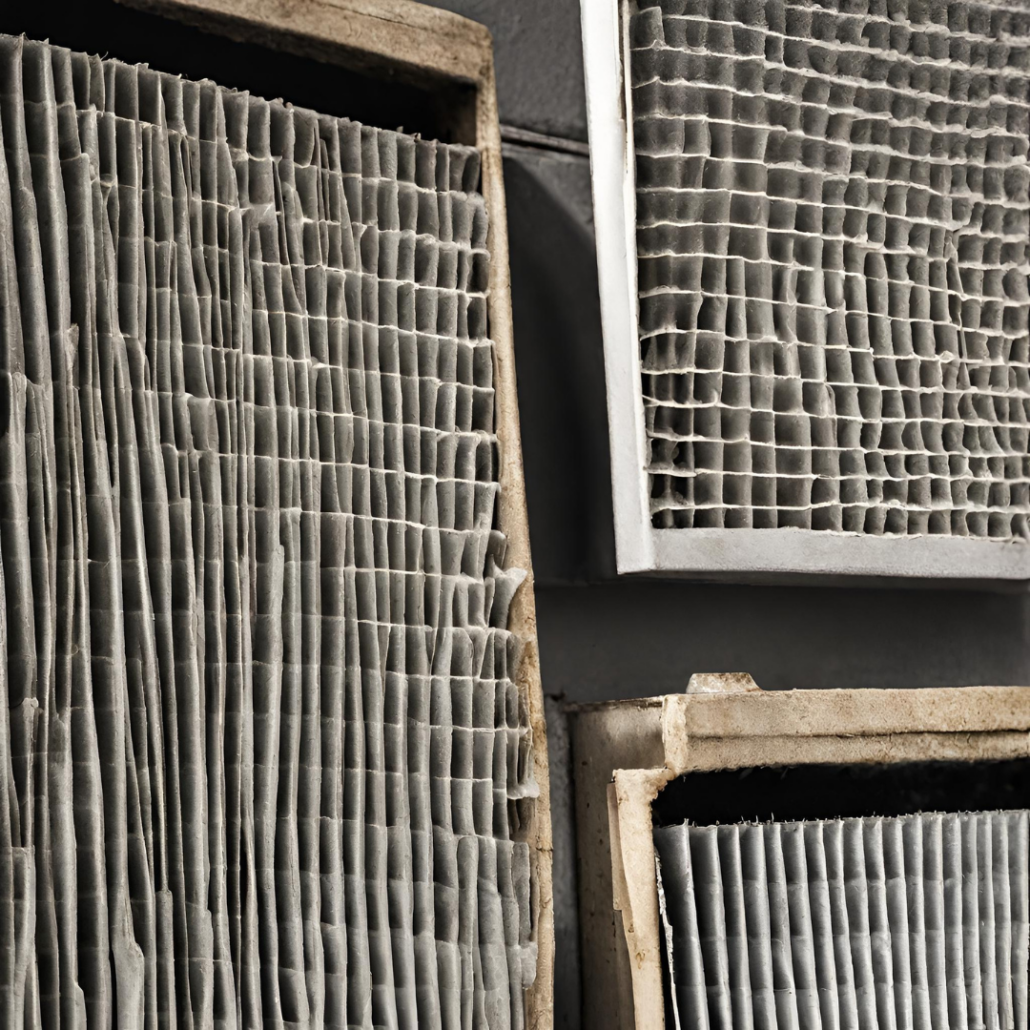Breathe Easier and Save Money: The Advantages of Regular HVAC Filter Changes

When the temperature drops and windows stay shut, your home becomes a sealed environment. That means the air you breathe is mostly recirculated—and if your HVAC filter isn’t doing its job, it could be circulating dust, allergens, and even mold.
Fall and winter are peak seasons for indoor air quality issues. The good news? One of the simplest, most effective ways to fight back is by changing your HVAC filter regularly.
What Your Air Filter Actually Does
Your HVAC air filter is more than just a mesh screen—it’s your home’s first line of defense against airborne pollutants. A good filter captures:
-
Dust and debris
-
Pet dander
-
Pollen and allergens
-
Mold spores and bacteria
-
Fine particles invisible to the eye
In short, your filter helps ensure the air in your home stays clean and breathable—especially critical during colder months when ventilation drops.
Why Indoor Air Gets Worse in Fall and Winter
When it’s cold outside, you close the windows and crank up the heat. That makes sense. But here’s what happens:
-
Less fresh air comes in
-
Indoor pollutants build up
-
Your HVAC runs more often
And if your air filter is dirty or clogged, it won’t be able to trap the contaminants properly. This can lead to everything from allergy flare-ups to musty odors—and it forces your HVAC system to work harder than necessary.
3 Reasons to Change Your Filter More Often in Cold Weather
1. Cleaner Air = Healthier Home
A fresh filter captures pollutants before they spread. It’s especially important if you have pets, allergies, or a household full of guests during the holidays.
2. Lower Energy Bills
When your filter is clogged, your HVAC system has to push air through a wall of dust. That takes more energy—and drives up your monthly bill. Clean filters reduce strain and improve airflow.
3. Longer HVAC Lifespan
Routine filter changes prevent long-term damage to your system. Less wear and tear = fewer repair bills and a longer-lasting unit.
How Often Should You Change Your HVAC Filter?
As a general rule, change your filter every 1–3 months during fall and winter. But if you have pets, allergies, or a fireplace, monthly changes are your best bet.
Need help deciding? That’s what we’re here for.
Should You DIY or Call a Pro?
Changing a standard air filter is simple for most homeowners. But if you’re not sure what type you need—or want a full system check while you’re at it—professional maintenance can give you peace of mind.
Jacobs and Rhodes offers flexible options, including one-time visits or seasonal service plans to keep your HVAC running smoothly all winter long.
Filter Costs vs. Health and Energy Savings
Worried about the cost of replacing your filter? Consider the flip side:
-
Higher energy bills from a clogged system
-
Health issues triggered by poor air quality
-
Emergency repair costs from system failure
Compared to all that, a clean filter is one of the most affordable ways to protect your comfort and your wallet.
Wrap-Up: Breathe Easier This Fall and Winter
Don’t wait until your allergies kick in or your furnace starts working overtime. Changing your air filter is quick, easy, and impactful.
-
Boost indoor air quality
-
Lower your energy usage
-
Extend the life of your HVAC system
Need a filter?
Shop online with Jacobs and Rhodes and we’ll ship one straight to your door—fast, easy, and hassle-free.
👉 Order your replacement filter today
Or call us to schedule a full HVAC checkup before winter really sets in.

 Jacobs and Rhodes
Jacobs and Rhodes Jacobs and Rhodes
Jacobs and Rhodes